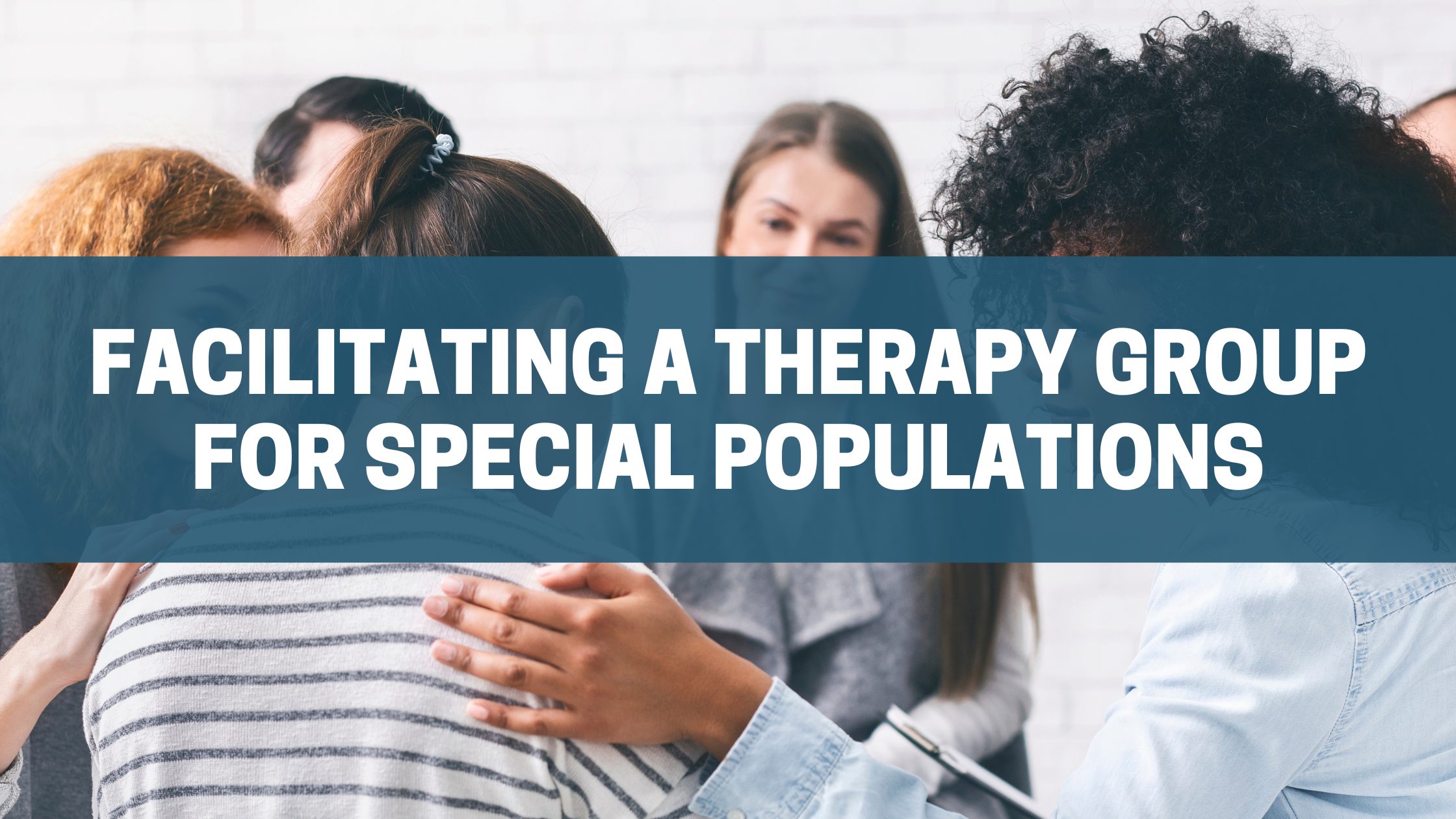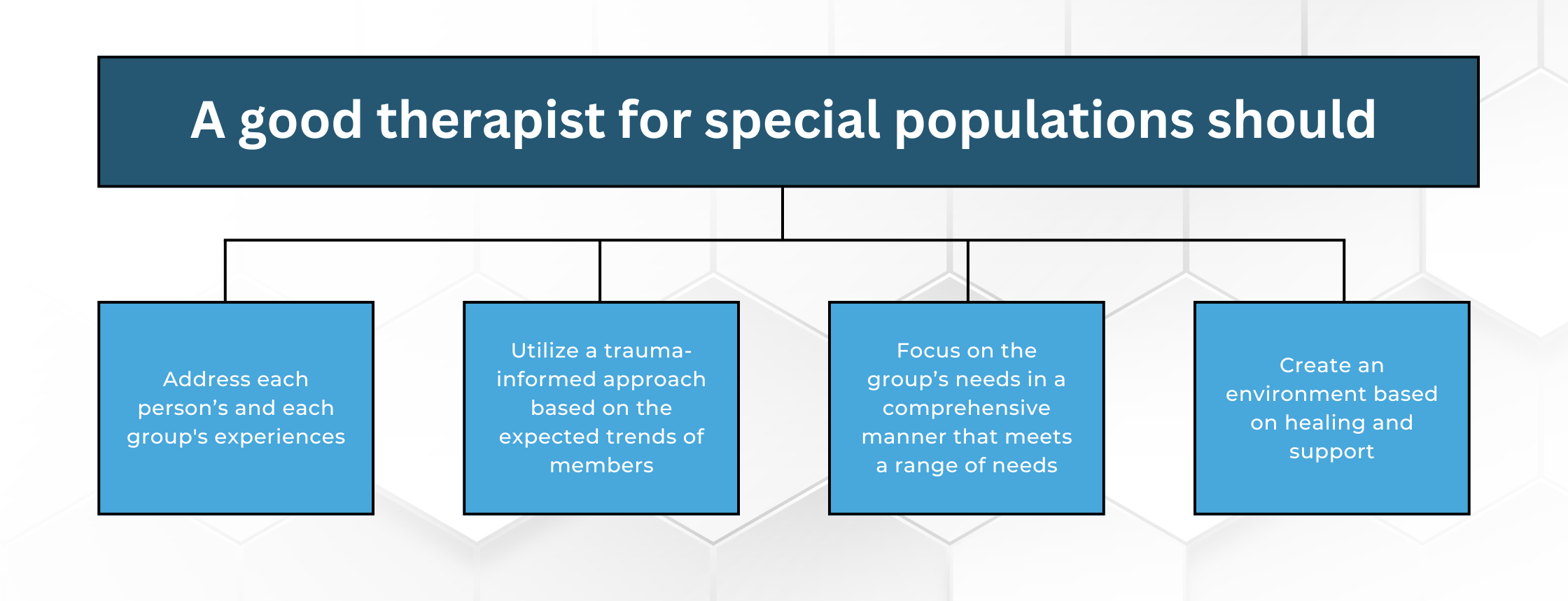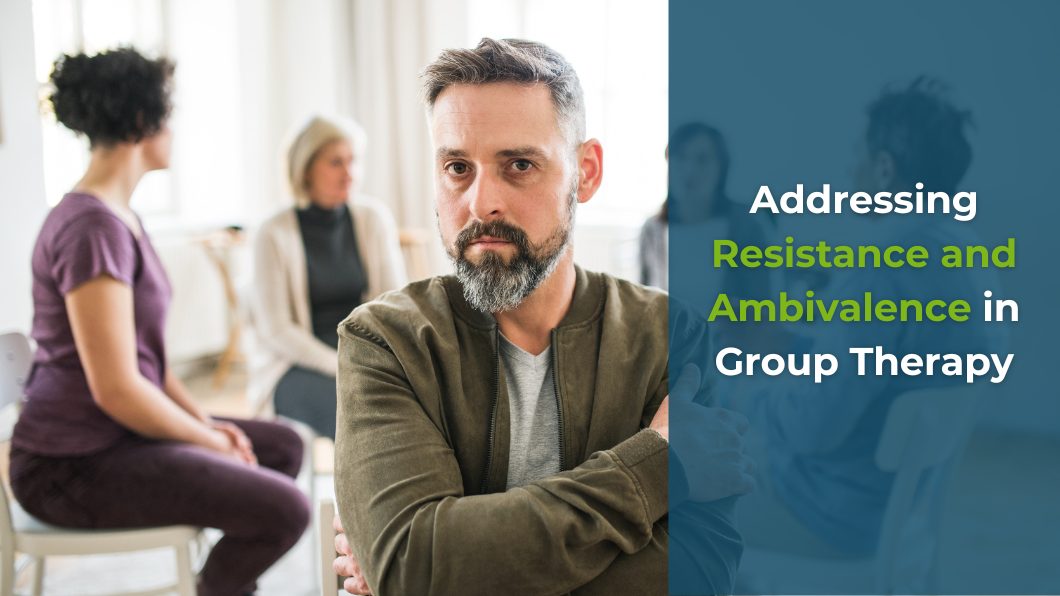
Facilitating a Therapy Group for Special Populations
A therapy group tends to be organized by the diagnosis or set of symptoms it is designed to treat. Groups for depression, anxiety, grief/ loss, and others are common experiences, but some therapists find success by organizing a therapy group based on the demographics of the members.
These special populations separate group members into shared groups based on their traits and characteristics. Although this approach may not be ideal for all groups, doing so can offer an invaluable sense of community and support to group members, which improves their symptoms and overall well-being.
Free Download: Group Therapy Starter Kit

What are Special Populations?
Special populations are subcategories that serve to differentiate clients based on aspects of their current or past status, rather than current or past mental health status. In standard groups, people may have the same mental health symptoms with different demographics, but in therapy groups for special populations, people will have different mental health symptoms with similar demographics.
Depending on how deep you decide to delve, special populations can target very specific aspects of someone’s life. Some types of special populations include:(1)
- Age - children, teens, young adults, adults in midlife, older adults
- Sexuality
- Sex and gender identity
- Military status
- Race
- Religion
- Physical health conditions or differing abilities
- Socioeconomic status
With this information, you could have a broader group of people that experience some kind of medical complications, or you could target a narrow niche by creating a group for Asian American young adult Mormons with cancer who identify as gay men. Either group could be highly effective and beneficial if you can find and add the best candidates to the group process.
Benefits of Treating Special Populations
The perceived benefits of therapy groups for special populations stem from the notion that people with similar demographics are going to experience similar struggles. That also means that they could have similar group therapy goals and find benefit from similar treatments.
For example, in the U.S., about 0.3% of people identify as transgender, but these folks experience disproportionately high incidence of mental health and substance use concerns. They have a higher risk of lower income levels, higher rates of PTSD, and are more likely than others to experience intimate partner violence. (2)
Having a therapy group specific for a special population like transgender people can prove transformative as groups often experience barriers and discrimination in healthcare settings. People from special populations may note:
- Refusal of treatment and standard care
- Being harassed before, during, or after an appointment
- Violence in a medical or mental health care setting
- Limited expertise from staff providing care
These experiences can push people away from professional treatment, which may increase feelings of safety but perpetuate symptoms, stress, and struggles.
Goals of Treatment for Special Populations
Although it’s true for all mental health treatments, the goal of treatment for special populations is to hone in on the core elements of the group. Through this targeted form of treatment, clients meet with group leaders and group members that are keenly aware of their situation and prepared to offer a sound foundation of understanding and competence.
With these elements in place, group therapy for special populations can get clients to achieve their goals more quickly, while building support, connections, and resilience.

How to Treat Special Populations in a Therapy Group
Some therapists may think that they must be a member of the specific group to be their therapist, meaning, for example, that a facilitator of a therapy group for Veterans needs to be a Veteran themselves. Some other therapists believe that they must know everything there is to know about the group and achieve total cultural competency.
In reality, neither of these is completely true. In some respects it would be nice to be a member of the group you’re treating or be a renowned expert on the intricacies of the special population, but all you really need is an attitude of patience, understanding, and humility. It doesn’t matter that you don’t know everything about the group. It only matters that you care enough to be present and open to their lives.
A good therapist for special populations should:(2)
- Address each person’s and each group's experiences
- Utilize a trauma-informed approach based on the expected trends of members
- Focus on the group’s needs in a comprehensive manner that meets a range of needs
- Create an environment based on healing and support
Setting out to treat special populations can seem like a journey filled with barriers and obstacles, but these should not stand in your way.
Challenges Associated with a Therapy Group for Special Populations
Like any other form of group therapy, treating special populations comes with a set of risks, though they may be more unique than other groups. Some of the top challenges that come from working with special populations include:
- Being accepted by the group. Some members may only see the therapist as “different” or an “outsider”
- Breaking cultural norms. Despite your best efforts, you may inadvertently behave in ways that are counter to the group culture. Ignorance can create problems but humility can resolve the problem.
- Forming an incohesive group. Is the group built in the best way to support the special population?
Building the Best Therapy Groups
This third point is important and warrants more detail. In the therapy group building process, some therapists may make a mistake by thinking that any member of a special population can connect with another person from that population.
For example, someone who is transgendered does not automatically need to be placed in a therapy group for trans people. Perhaps this individual is fully comfortable and consistent with their status, so a trans group would focus on an aspect of their life that is not a current source of stress. They could be better served in a group for people with depression or anxiety.
Therapists have to ensure that they recognize and appreciate the role of the special group for the person. When screening the individual, the therapist should ask:
- What special group or groups does this person belong to?
- How does this group impact their identity?
- Is this group a source of stress or support?
- What risks and challenges are more common for this group?
- Would another group topic or another therapy modality be more appropriate for this group?
By finding the answers to these questions, a therapist can better establish the more appropriate disposition for the client. Even one or two clients can shift the entire group dynamic, so the screening process is paramount.
Final Thoughts on Facilitating a Therapy Group for Special Populations
For therapists looking to make the biggest possible impact in group therapy, building a therapy group specifically for a special population is a wonderful idea and a great test of your growing group skills. You don’t need to have depression to run a depression group, and you don’t need to be in a special population to run a special population group. The challenge will create a rewarding experience.
ICANotes is a robust tool for documenting and analyzing group sessions. By utilizing ICANotes, therapists can efficiently capture the unique dynamics of each session, track progress, and identify areas needing attention. The group therapy notes module in ICANotes streamlines the documentation process, allowing therapists to focus more on their clients and less on paperwork.
Book a demo and find out how to streamline your documentation process:
About the Author

Eric Patterson, MSCP, NCC, LPC
Eric Patterson, MSCP, NCC, LPC, is a professional counselor who has been working for over a decade to help children, adolescents, and adults in western Pennsylvania reach their goals and improve their well-being.
Along the way, Eric worked as a collaborating investigator for the field trials of the DSM-5 and completed an agreement to provide mental health treatment to underserved communities with the National Health Service Corp.
Sources
- National Academies Press. (1990). The Treatment of Special Populations: Overview and Definitions.
- Substance Abuse and Mental Health Services Administration. (1999). Treatment Improvement Protocol (TIP) Series - Treatment Considerations for Special Populations.








